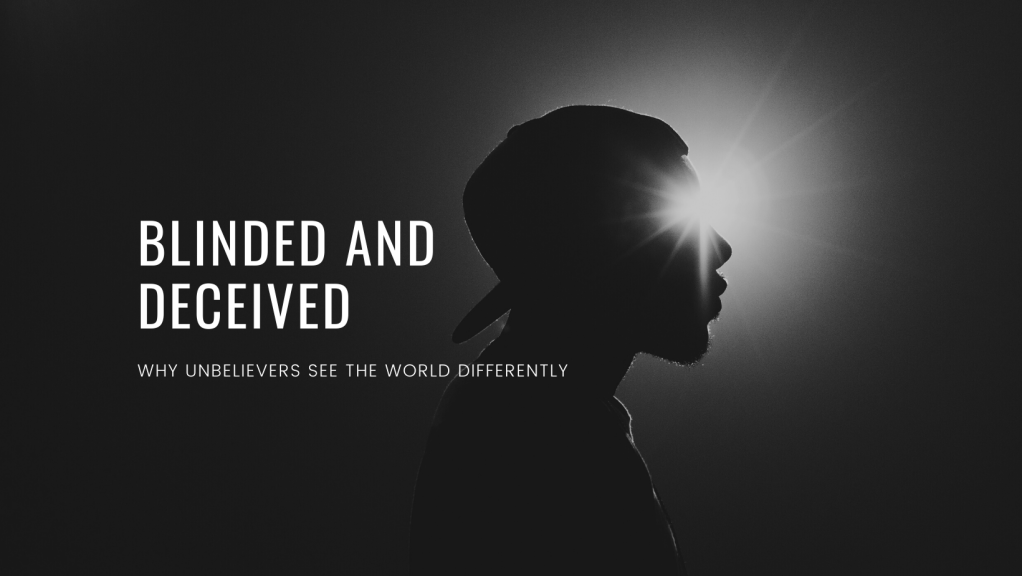
It is imperative that we understand that Jesus didn’t teach in parables until his second year of public ministry. During his first year, his speech was clear, very plain, and should have been understood by everyone. Indeed, on the very first day of his public ministry, when he stood up to read in his hometown of Nazareth (Luke 4:16), Jesus read from Isaiah 11 saying: “The Spirit of the Lord is upon me…” and claiming he was able to administer the office of Messiah (Luke 4:18-19), he added: “This day is this scripture fulfilled in your ears” (Luke 4:21). There was nothing dark or mysterious about his speech at that time. Jesus was very clear in his claim. Nevertheless, the response he received from the rulers of the synagogue and the people with them was: they rose up to seize him and thought to cast him off a nearby cliff (Luke 4:29).
It appears Jesus’ audience had already made up their minds about him (Luke 4:22), and his claim offended them (Mark 6:2-3). They thought they knew Jesus and had preconceived assumptions about him, before he began making claims to the office of Messiah. They simply didn’t believe him, and nothing he did in terms of miracles would change their minds. This is the context of Jesus’ quote of Isaiah 6:9-10 (cp. Mark 4:12). In other words, the minds of the Jewish leaders, and the minds of the Jewish people were blinded. They chose darkness over light (John 3:19). Therefore, the Lord judged them and blinded them so they couldn’t repent until they fulfilled what was in their evil hearts (cp. Luke 4:29) and crucified their Lord and Savior. From the time Jesus first began speaking in parables to the people (Mark 4:2), judgment was made between the folks who had eyes to see and ears to hear and those who didn’t (Mark 4:9). Those who were willing to believe Jesus were given the ability to unravel the secret of the Kingdom of God (Mark 4:11), but those unbelievers who mocked Jesus, demonized him and refused to trust his claims were blinded in a manner that they would be unable to see the end of their evil deed until they had crucified their Messiah. So, parables served as a tool of judgment to blind some folks, while at the same time enlighten others (Mark 4:11; Exodus 14:20).
Moses declared that the Lord hadn’t given the people eyes that see or ears that hear (Deuteronomy 29:4). Yet, Moses, Joshua and Caleb were able to understand. Why was that? I believe it was because they were willing to see beyond their own understanding and trust the Lord when things looked impossible to overcome (cp. Acts 7:24-25; Exodus 3:11; Numbers 13:30). Some folks are willing to look beyond their own inability and trust the Lord in spite of the circumstances. It is these whom the Lord rewards with eyes to see and ears to hear (Mark 4:9). On the other hand, those who are wise in their own understanding and refuse to trust the Lord, when everything seems troubling, these are the folks whom the Lord rewards with blindness and dullness, so they are unable to perceive the end of their decision. Parables, then, represent the Lord’s judgment against unbelief, not indiscriminate blindness put upon the innocent for no good reason.
When the Jewish leaders slandered Jesus and his ministry (Mark 3:22), Jesus told them their sin would have no forgiveness (Mark 3:29). In other words, the evil they did in slandering Jesus would be a plant that would be allowed to bear its evil fruit. They would be unable to repent until the end of their deed was realized in the crucifixion of their Messiah (Matthew 12:39-40).
The prophet asked: “O LORD, why have you made us err from your ways, and hardened our heart from your fear” (Isaiah 63:17)? This is a question that many scholars today are burdened with, as they ponder the reason for Jesus’ parables. Why have you hardened the hearts of the people, and blinded their eyes, so they can’t repent (cp. Mark 4:11-12)? I believe the answer to this question is the people have first shown their decision to reject the Lord, and the Lord then brings strong delusion over them, so they are unable to perceive the end of the decision they have already made.
The prophet says the Lord is against the man who separates himself from God, setting up an idol in his heart before coming to the prophet to inquire of him concerning the Lord’s will (Ezekiel 14:7). In other words, the man is seeking to substantiate his own preconceived notions (the idol) about the Lord. He is blinded by his own idea first, before the Lord responds. Notice how Paul puts it:
For lawlessness is already at work in secret; but only until the man who is now exercising a restraining influence is removed, and then the Lawless one will be revealed, whom the Lord Jesus will sweep away with the tempest of His anger, and utterly overwhelm by the awful splendor of His Coming. The appearing of the Lawless one will be attended by various miracles and tokens and delusive marvels–for so Satan works– and by every kind of wicked deception for those who are on the way to perdition, because they did not welcome into their hearts the love of the truth, so that they might be saved. And for this reason, God sends them a misleading influence that they may believe the lie; in order that all may come under judgment who have refused to believe the truth and have taken pleasure in unrighteousness. (2 Thessalonians 2:7-12)
The Lord is our Judge, and parables are his judgment, both for sight and blindness (cp. Exodus 14:19-20). Judgment is determined by one’s acceptance or rejection of Jesus.